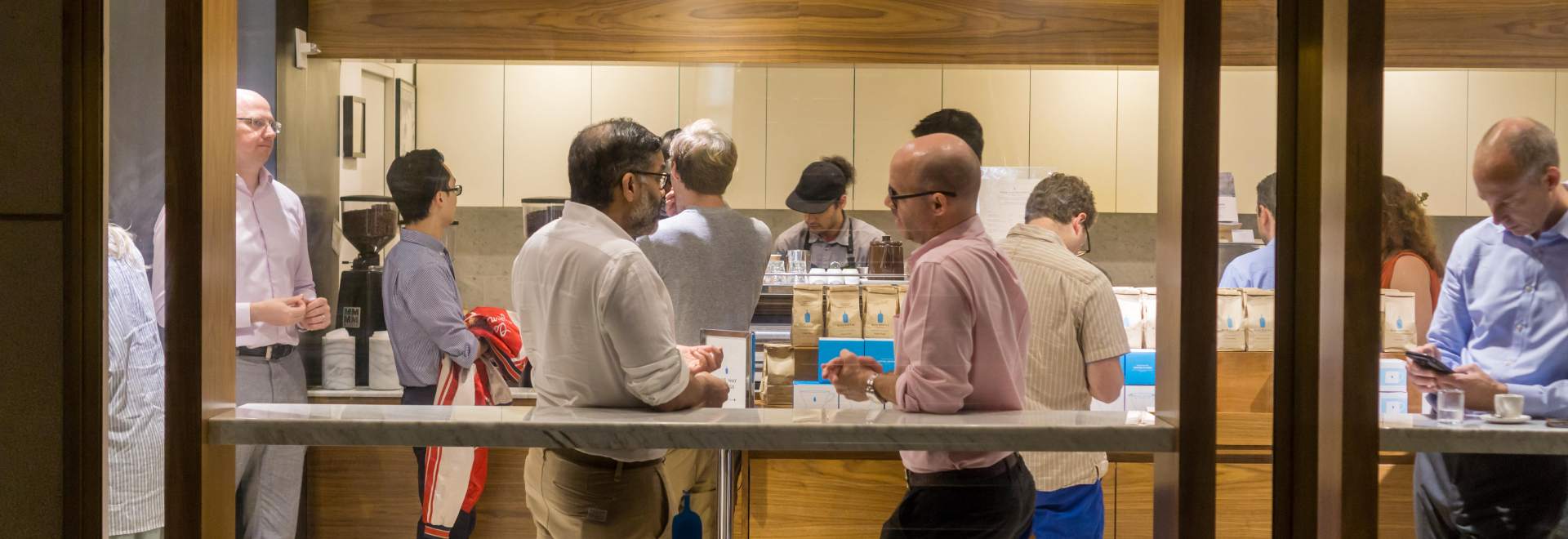What makes a successful coffee shop?
Running a coffee shop is a dream many people have had. Jenna Gottlieb speaks with Miranda Caldwell about how to make that dream a viable reality.
The key to a successful coffee shop lies in the same three essential principles that are true for any business: Identify a market to serve, offer them what they want in a way that sets you apart from the competition, and do it in a way that makes a profit.
According to Miranda Caldwell from The Coffee MBA, it’s imperative to nail these core elements down as you design (or redesign) how your business operates.
In the UK, the number of coffee shops has grown from 13,000 in 2009 to almost 26,000 in 2019 – almost doubling within a ten-year period. Coffee shop markets around the world have become so saturated that standing out has become essential.
In general, people open cafés out of a passion for coffee, with perhaps a romanticised idea of what running a shop looks like. However, they may often overlook the numbers – entering into a business without even a basic understanding of a coffee shop’s cost structure.
“In my experience, people start coffee shops to build meaning in their lives and community,” says Miranda. “Founders of coffee businesses often have strong values and a beautiful vision for how to support the value chain and the community they operate within. They see coffee as a vehicle for change, connection, and craft.”
“Unfortunately, this beautiful vision isn’t always balanced with solid business principles and foundations.”
Beyond its value in running a profitable and cost-efficient coffee shop, having a clear understanding of where your money is allocated is also valuable to gain a broader perspective on your business.
“When you’re doing your financial modelling, if you’re suddenly finding yourself unable to pay the wages you promised yourself you would pay, look inside of your costs and see what you’re prioritising instead,” says Miranda.
“Money can be a great stand-in for priority. What’s important to you – from a values perspective – to prioritise? That’s where your money should go. It’s all about choice-making.”
Branding and identity
Defining a sense of identity is crucial for a successful coffee shop – particularly in today’s competitive market where it’s easy to fade into irrelevance.
Miranda has two words for how coffee shops should approach branding: “Make it strong and make it authentic,” she says. “Most markets are extremely saturated, so knowing who you’re serving is important.
“Then speak to those people directly, based on the competitive advantage you know you have from the planning work you did at the very beginning.”
Indeed, having a strong sense of identity is meaningless if no one knows about it. As with many businesses, how a brand chooses to communicate can be a decisive factor.
“It may feel counterintuitive, but the more specifically you communicate, the more clearly you speak to your audience,” Miranda says. “Think about it. If I say to a crowded room, ‘I like your haircut’, everyone is going to assume I’m speaking to someone else.
“But if I say, ‘Hey, you with the short copper-coloured bob with bangs,’ there’s no confusion about who I’m speaking to. Then it suddenly feels special.”

Relationships
In many cases, coffee shops act as a pillar of the community. Nurturing relationships with local customers and other businesses or organisations can cement this position and establish a strong foundation for your coffee shop.
“You step outside of your four walls and start engaging in conversations,” says Miranda. “The most important part of that conversation is you listening to what they have to say. This is how you get feedback on your business. This is also how you understand what your community might need and areas where it makes sense for you to step in.”
Engaging with local organisations can also boost your visibility within the community. “The USA has a lot of local Chamber of Commerce chapters. Join! People should know the name and face of your founders and leadership,” Miranda says.
“Remember when you outlined exactly who your target audience was? Go find those people and ask them how you can support them. It likely won’t be difficult if you make it about how you can be of service.”
At the same time, it’s important to look inward and nurture the relationships within your business. Investing in training and team bonding can improve service standards, coffee quality, and overall morale. In turn, this can contribute to better staff retention which can be a pivotal factor for a successful coffee shop.
Indeed, many coffee shops struggle with this element, and it’s one of the reasons why many don’t survive. Data from an April 2019 survey indicates that approximately 62% of independent coffee shops close within the first five years of operation, with 17% shutting down within the first year.
On top of community engagement, staff training, and building a strong, relatable brand, running a successful coffee shop requires a great deal of grit, as well as a sprinkling of luck. However, by controlling the controllables, it’s certainly a dream that’s within reach.
New Ground Coffee
Want to read more articles like this? Sign up for our newsletter!








